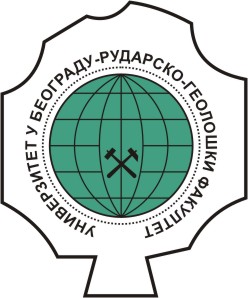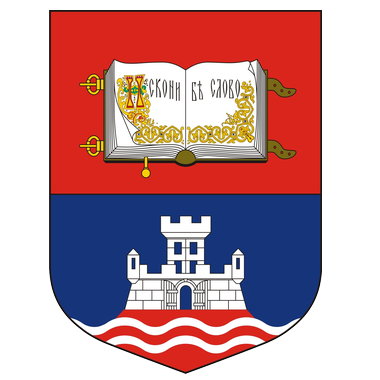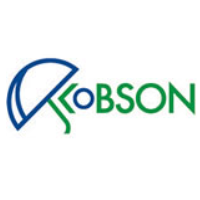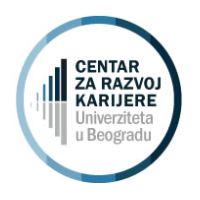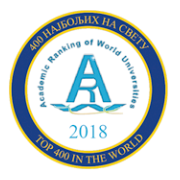Study program:
Environmental Engineering (V semester -BsC) |
|
Name of subject: Waste Management and Characterization |
Instructors:
Prof. Dragana Nišić, Uroš Pantelić |
|
Status: Compulsory |
|
ECTS: 5 |
|
Prerequisites: Students are obliged to attend lectures, actively participate in exercises, and run a laboratory diary. To solve independent homework, seminar work. |
Course Objectives:
Today, the most acceptable and most rational way of protecting the environment and managing waste, requires a complete knowledge of the process of exploitation, processing, preparation and use of mineral raw materials, or the process of waste generation. Knowledge of the waste of mining and processing activities represents a new interdisciplinary scientific field. The course provides basic guidelines on sampling, characterization of materials, monitoring and treatment of waste, as well as environmental impacts. Solid waste management involves the reuse and utilization of waste components, as well as the ultimate disposition of waste material. The ultimate goal is the environmentally-trained specialists in mining, and not specialists protecting the knowledge of mining and preparation. |
Learning Outcomes:
Upon completion of this course, students will be able to: recognize and describe the basic types of waste - mining waste (exploitation, processing, separation, concentration, use, etc.); to determine the basic physical, chemical, technological and mechanical characteristics of the waste; to understand basic waste management principles; to understand operational and regulatory issues. In order to develop the ability of students to predict the behavior of inadequately treated waste, the possibility of complex valorisation of waste material and give it a new usable value |
Content:
Theory teaching
Within this course, two parts are studied: the first part deals with the characterization of waste - waste, secondary raw materials, raw materials of anthropogenic activity, etc. In the second part of this course, basic knowledge is gained about the principles of handling, management and disposal of solid waste. Within this course, one will learn about the classification of different types of waste - according to its origin, type and physical-chemical, biological and mechanical characteristics. Basic procedures for recycling and disposal of certain types of waste will be learned. Selection of waste disposal site according to the geological characteristics of the site. Waste Management Strategy. Separation procedures for waste. Zero waste technology. Neutralization of toxic and thermal treatment of waste. Technological processes applicable to various types of waste materials, including municipal solid waste, hazardous waste, industrial waste, waste from the extraction and processing of ores and agricultural waste. Practical teaching
Introductory lecture: Significance and task, Treatment and disposal of refuse mining, processing of raw materials, extractive metallurgy waste, hydro-metallurgy, smelting, electrolysis, and industrial waste in general. The first and most basic step in the treatment and disposal of waste is the characterization of the material and the assessment of the possibility of applying appropriate, treatment modes. Origin, sources and types of solid waste. Determination of physical, chemical and biological characteristics of solid waste. Physical, chemical and biological changes in stored solid waste. Assessment and calculation of reserves of masses of previously stored-deposited secondary raw materials. Sample. General definitions from the theory of sampling, separation of representative samples of secondary mineral raw materials, and factors that influence the representativity of the separated sample. Primary sample and its processing. Granulometric composition. Characteristics of bulk and morphology of grain waste. Classification of fine grains - sub-assay analysis. Display of granulometric and chemical composition. Sink-float (fractional) analysis. Methods of separation of mono-mineral fractions (heavy liquids, magnetic analyzers, Holten`s tables). Basic principles of solid waste management. Analysis of technological processes on various types of waste material. Solid waste management of the exploitation, processing and use of mineral resources through the procedures for re-use and use of solid waste components and the neutralization of hazardous waste materials. Interdisciplinary approach to solid waste management. |
Suggested Reading List:
- Tomanec R., 2000: Metode ispitivanja mineralnih sirovina u PMS. – Izdanje: RGF, Beograd. CD.
- Tomanec R., 2002: Zbirka rešenih zadataka iz MIMS u PMS. – RGF, Beograd.
- Tomanec R., Vakanjac B., 2001: Rudne parageneze, koautorska skripta. RGF, Beograd.
- Romanov V. A., Morozov M. V., 1999: Laboratory methods of investigation of minerals, rocks and ores. Methodical guidelines for laboratory works. Saint-Petersburg.
|
Conduct of the Course:
Students in laboratories carry out practical exercises, on real materials (waste, concentration`s tailing, use of coal, etc.), determine their characteristics and determine their future application. They are introduced to the possibilities of valorisation useful components from these new secondary mineral raw materials. |
Fund hours:
| Lectures |
Exercises |
Other forms of teaching |
Study research |
| 2 |
2 |
0 |
0 |
|
Assessment:
| Final Exam |
ECTS |
| Written exam | 30 |
| Classwork Assessment |
ECTS |
| Class Participationа | 10 | | Practical Classes | 30 | | Written tests | 10 | | Seminars | 20 |
|
|
Additional Assessment Criteria: - |
|
|
